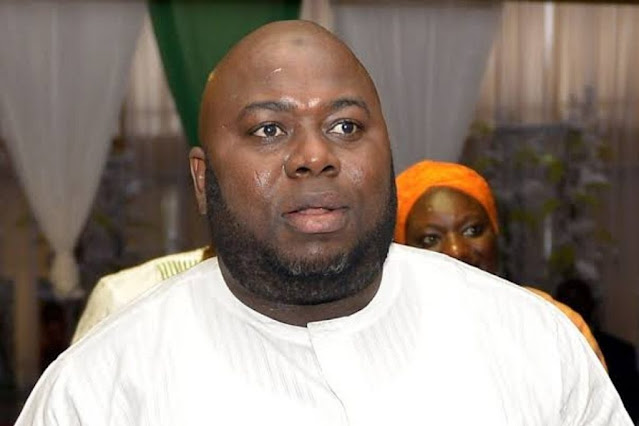Mujahid Asari-Dokubo, once a powerful voice in the Niger Delta agitation and former leader of the now-defunct Niger Delta People’s Volunteer Force, has issued a sharp and public condemnation of Yoruba political actors, cutting all ties with them in a dramatic shift that could ripple through Nigeria’s political landscape.
Addressing the public through a video posted to social media on Monday, Asari-Dokubo did not mince words as he accused Yoruba politicians of betrayal and dishonesty. He expressed deep disappointment at what he described as a longstanding pattern of unreciprocated loyalty, particularly from the Ijaw people, toward their southwestern allies.
His message, delivered with unmistakable conviction, signals a reorientation in his political loyalties. Asari-Dokubo announced a full alignment with northern politicians, describing them as consistent, honorable and respectful of political partnerships. He criticized the Yoruba elite for turning their backs on the Ijaw people after years of shared struggles and political support.
“They betrayed us, despite everything we did together. After all our sacrifices, they abandoned us,” he stated forcefully, referencing several political chapters that saw the Ijaw standing behind Southern interests. He painted a picture of commitment and solidarity by the Ijaw, contrasted by what he now sees as opportunism and duplicity from Yoruba leaders.
Memories of past alliances were laced with frustration, as he detailed how his people rallied for regional unity only to be left out when power dynamics shifted. Asari-Dokubo suggested that the political history between the South-South and the South-West has been marked by broken promises, especially during critical moments such as elections and the post-election period.
His tone turned more introspective as he acknowledged a newfound appreciation for the wisdom of earlier generations of Ijaw leaders who chose political alliances with the North. “Our fathers were not wrong. We mocked them for working with the North, but today I see that they had clarity,” he reflected.
Positioning himself as part of a new wave of Southern leaders seeking relevance in an evolving political map, Asari-Dokubo declared his commitment to re-forging northern ties and strengthening relationships that he believes are rooted in mutual respect. “From now on, I will work, work, and work with the North. We will build this alliance and crush opposition wherever it arises,” he said in a determined tone.
The timing of his pronouncement is critical, as Nigeria braces for a period of heightened political activity. Realignments are already occurring across party lines, with many politicians rethinking loyalties and strategies. Asari-Dokubo’s realignment could influence not only Ijaw sentiments but also the broader South-South region, where feelings of marginalization have simmered for decades.
Critics may see his move as opportunistic or divisive, yet for many within his base, the shift represents a reckoning with uncomfortable truths. Some political analysts suggest that the former militant leader is tapping into a growing frustration among Niger Delta communities who feel underrepresented in national politics despite their economic contributions.
The North, for its part, may welcome the alliance. Asari-Dokubo brings with him significant grassroots influence, particularly among ex-agitators and youth in the oil-rich region. His involvement could bolster northern political efforts to expand their appeal beyond traditional strongholds.
Observers are watching closely to see if other influential figures from the Niger Delta will follow his lead. Whether this move marks the beginning of a wider political shift or simply reflects personal disillusionment remains to be seen. What is clear, however, is that Asari-Dokubo has chosen to walk a new path, one he believes offers greater respect and reliability than his past affiliations.
Nigeria’s political terrain continues to evolve rapidly, and Asari-Dokubo's latest declaration adds another layer to the complex interplay of loyalty, identity and power. His decision underscores a larger question that haunts many in the South-South region: what is the true value of political alliance if it consistently leads to betrayal?













![Content Creator Angelica Kelechi Speaks Out on Alleged Sexual Assault at Khloe Abiri’s Spa [VIDEO]](https://blogger.googleusercontent.com/img/b/R29vZ2xl/AVvXsEgQStip4cn2DAOvQ2hNFU30OAFWoxfQIDOnStd0uVgwwxKrFAQYYvtFni6QV04OGP8dyKk5TCAhXM5es9linl1ClhjPzaazz2tTt0LmJ5lFVe5202o2McF9QROT1v2hEyNTdY-M1KRuLTY6OqqysKNfcsY5bCtwCIP8wEQ4AXcfQfTaXWWZiixqf82NDH5a/w72-h72-p-k-no-nu/abiri-khloe123.jpg)






0 Comments
Hey there! We love hearing from you. Feel free to share your thoughts, ask questions, or add to the conversation. Just keep it respectful, relevant, and free from spam. Let’s keep this space welcoming for everyone. Thanks for being part of the discussion! 😊